Learning a language with flashcards with Cardsystem: an innovative learning tool designed to simplify the process of using flashcards for effective language learning
Learning a language with flashcards with Cardsystem

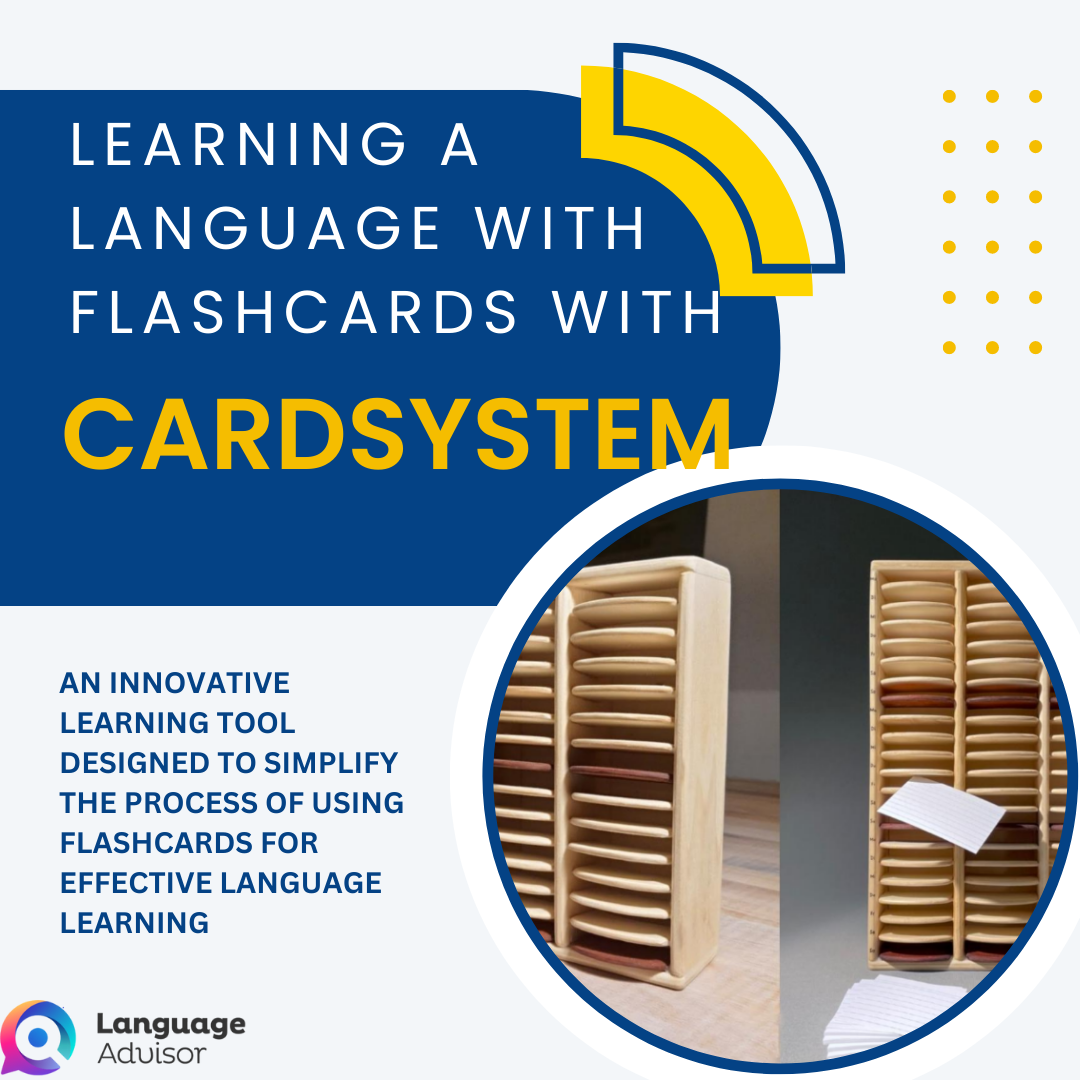

Learning a language with flashcards with Cardsystem
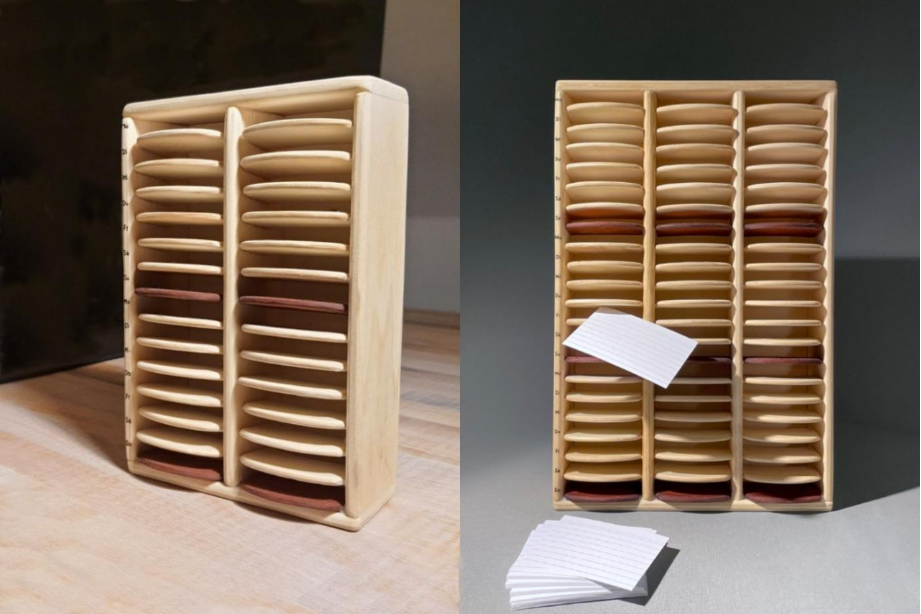

Cardsystem is an innovative learning tool designed to simplify the process of using flashcards for effective language learning. The system functions similarly to a calendar, with each column representing a day, including red compartments for Sundays. It spans over 4 or 9 weeks, with the days clearly marked on the left bar.
The approach is straightforward—on each day, users review their respective stack of A8 flashcards. As they progress, the system encourages pushing easier cards further into the future, enabling learners to focus more on challenging material. The ultimate goal is to repeat the learning material just before it would be forgotten, maximizing memory retention and facilitating the transfer of information from short-term to long-term memory.
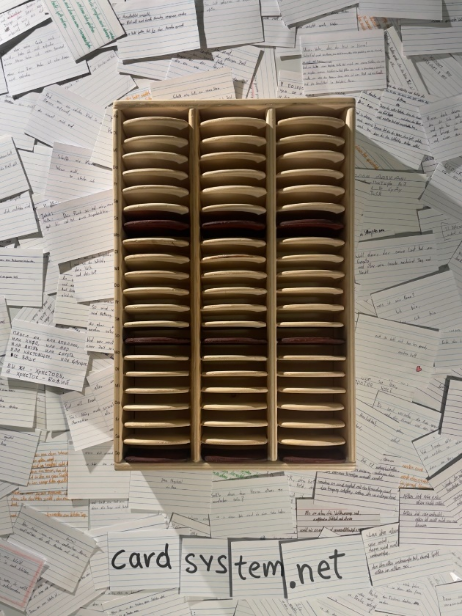

To manage hundreds of flashcards efficiently and maintain a structured learning experience, the Cardsystem plays a pivotal role. Its systematic approach not only enhances enjoyment during the learning process but also leads to successful outcomes. By consistently implementing the system, learners can achieve their goals effectively and solidify their knowledge in the long run. The system facilitates targeted repetition, prioritizing more difficult cards for more frequent review and extending intervals for well-mastered ones.
Some History


The development of Cardsystem traces back to the creator’s personal struggles with effective studying during university. Having experimented with various apps, systems, and techniques without sustaining a routine, they devised the initial version of the Cardsystem, represented by a 7-day box and a single slot for storage. Overwhelmed by its effectiveness, the creator expanded the system to accommodate multiple subjects during their engineering studies, utilizing index cards for formulas, definitions, diagrams, summaries, and exercises.
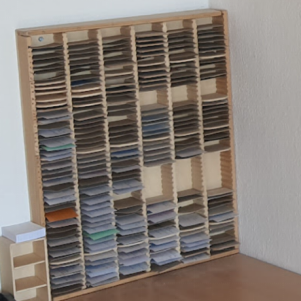

Impressed by the positive results and encouraged by family, the creator decided to professionalize the system and make it available beyond their immediate circle. Since then, the Cardsystem has gained popularity, with shipments reaching countries like Portugal and the United States.
Driven by a strong desire to make the most of their life and fueled by love for others, the creator’s goal is to contribute to making the world a more beautiful place through their innovative learning tool.
Vocabulary Learning Systems


BETTER RESULTS ON TESTS – WHICH METHOD SHOULD I USE?
Researchers compared the test results of students who used flashcards as a study method with those who did not. The results were promising. In a study examining 470 students in a college Introductory Psychology course, it was found that over 70% of the class used flashcards for study. This group achieved significantly better results on exams compared to those who did not use this method.
HOWEVER, THERE IS A PROBLEM WITH FLASHCARDS:
If you repeat the subject matter too late, you may have already forgotten it. The brain has a limited capacity to retain information. Without regular repetition, memories fade over time and can eventually be lost.
On the other hand, if you review the material too soon, there will be little challenge to memory and the information will not have a sufficient opportunity to become ingrained in long-term memory. The information tends to remain in the short-term memory and cannot be called up permanently.
The optimal scenario is to repeat the material just before it would be forgotten. If you repeat the learning material at this point, the memory is actively challenged. Repetition prevents forgetting and supports the transfer of information from short-term memory to long-term memory.
To be efficient and avoid chaos when learning hundreds of flashcards, a well-structured system is essential. It helps to make learning more enjoyable and successful. By consistently applying such a system, you can effectively achieve your learning goals and consolidate your knowledge in the long term.
THE ”CARDSYSTEM”
It is a structured method to effectively learn and retain information.
The system uses an organized calendar structure, with each column representing a day, which is burned into the left panel. The red compartments are the Sundays and delimit the weeks. In total there are 9 weeks or 63 days.
The learning process follows a daily schedule.
You repeat the flashcards from the relevant subject every day to consolidate what you have learned.
The key to success lies in shifting the cards based on memory level. The better you master a card, the further into the future it will be classified. This means cards that you can easily answer are placed in later weeks. This allows you to focus on more difficult maps and pay more attention to them.
The index card system offers several advantages. It ensures targeted repetition, since more difficult maps are repeated more often, while already mastered maps are repeated at greater intervals. It allows for clear organization of the cards and makes it easy to track learning progress. It can also be adapted to individual learning needs and supports efficient learning.
By using the flashcard system, you can effectively consolidate what you have learned and keep it in your memory for a long time.
CONCLUSION:
A structured learning system is of great importance in order to make learning effective and sustainable. The index card system offers an optimal solution by allowing for clear organization, targeted repetition and customization. By using the flashcard system, learning can be made more efficient and retention of what has been learned can be improved.
If you want to know more, click on the button below




Also check out these flashcards






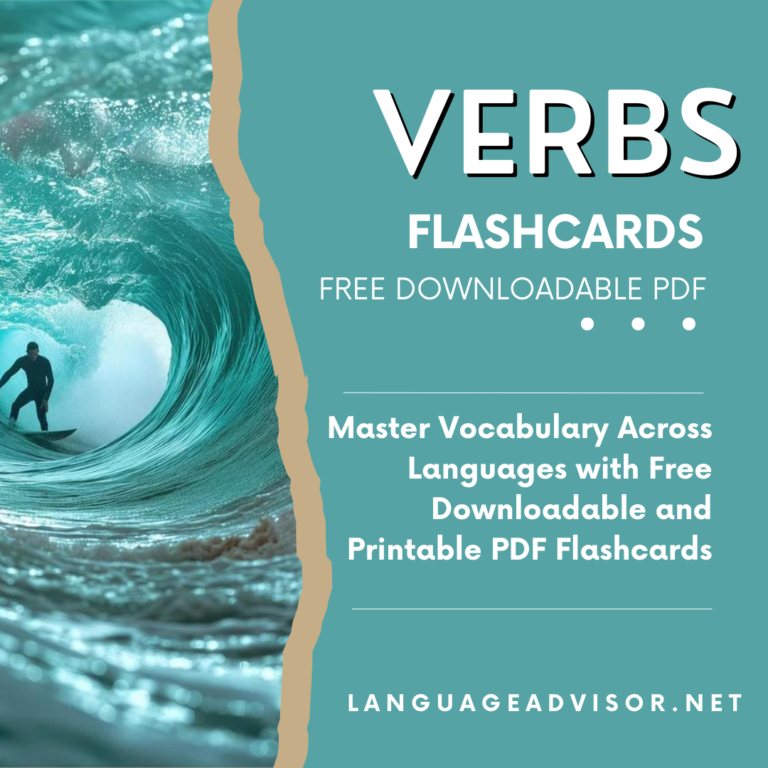



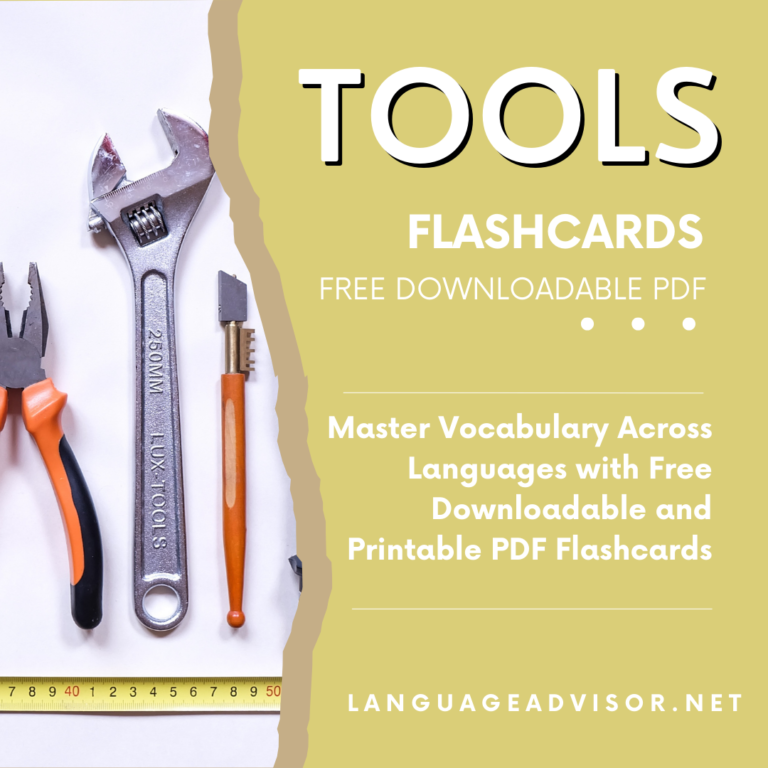


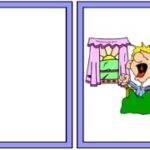

An Innovative Learning Tool Designed To Simplify The Process Of Using Flashcards For Effective Language Learning